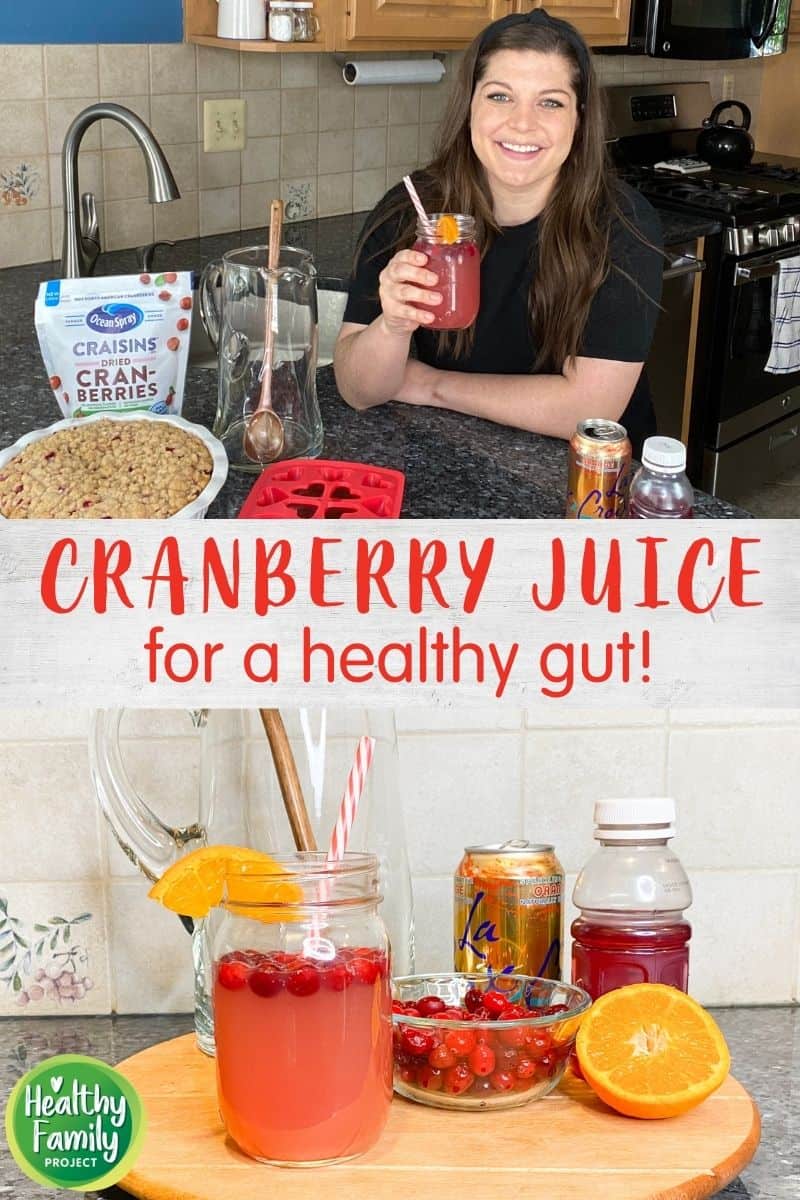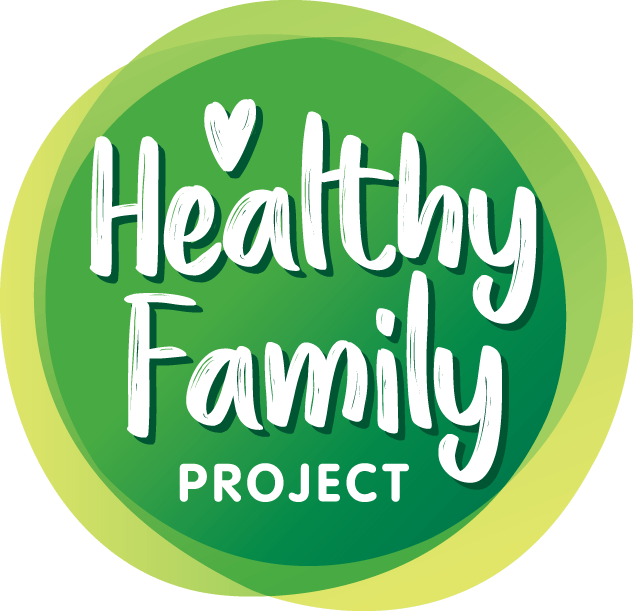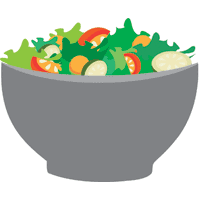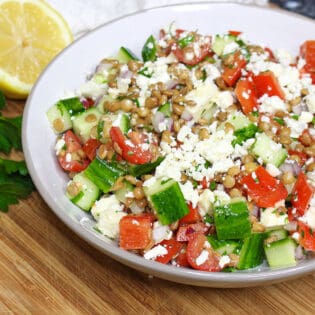Food Rx: Gut Healthy Benefits of Cranberry Juice
We’re teaming up with Julie Harrington, registered dietitian and culinary nutrition chef in a series focusing on the important role food plays in overall health. In today’s episode, we’re talking about the latest research on how cranberries can plan a role in improving gut health.
Disclosure: This post is sponsored by the Cranberry Marketing Committee. All opinions are our own.

Gut health remains a hot topic. In a previous episode of Food Rx, we discussed why gut health is important and the possible signs and symptoms of an unhealthy gut. In today’s episode, we’re diving deeper the importance of gut health and sharing the latest research on how a superfood like cranberries can make an impact.
What is gut health?
The gut or gastrointestinal (GI) tract is made up of several organs including the oral cavity, esophagus, stomach, gallbladder, pancreas and small and large intestines. These organs all work together to break down food so our bodies can use the nutrients from food to supply energy as well as vitamins and minerals to keep all body systems functional and healthy.
In order to keep the GI tract functioning properly, our bodies need a balance of bacteria required for gut health. The human gut contains billions of bacteria, some good and bad, that help make up the microbiome.
The microbiome has a significant role in our health. For example, it protects our immune systems and even has an effect on our moods.
Why is gut health important?
The gut is a complex system. A disrupted GI tract can have negative effects on other systems impacting the immune system, cardiovascular system, mood, and mental health, as well as possibly triggering autoimmune diseases and affecting sleep.
For perspective, approximately 60 to 70 million people are affected by digestive diseases annually in the United States. Signs of a disrupted GI tract include indigestion, gas, bloating, acid reflux, and bacterial overgrowth to list a few. Our diet, lifestyle habits, environment also has a direct impact on gut health.
How do I eat for gut health?
Having a well-balanced diet containing both prebiotics and probiotics work to support gut health. These two components work together to create an environment that promotes healthy gut bacteria and decreases pathogenic bacteria by reducing inflammation that could lead to chronic health conditions.
Foods to build a healthy gut:
Fruits and Vegetables
The soluble fibers or prebiotics found in certain fruits and vegetables work synergistically with probiotics to build a colony that supports the body. Foods such as cranberries, asparagus, apples, bananas, onions, garlic, and artichokes all contain soluble fiber that probiotics feed on.
Legumes
Chickpeas, lentils, beans, soybeans are all foods that promote the growth of beneficial bacteria in the gut. Legumes naturally contain prebiotics, a specific type of fermentable fiber, that probiotics flourish on and help sustain a population of healthy bacteria in the intestines.
Whole grains
Whole grains such as 100% whole wheat, barley, millet, and brown rice contain prebiotics that existing bacteria in the intestines thrive on.
Limit sugar and artificial sweeteners
Diets high in sugar and artificial sweeteners can disrupt the balance of GI health by creating an environment more favorable to pathogenic bacteria. For an overall healthy diet it is encouraged to limit added sugars and artificial sweeteners.
Fermented foods
Foods that are fermented are preserved with live microorganisms or cultures. Examples of these include L. bacillus used to make yogurt or Aspergillus oryzae which are used to make soy sauce.
These cultures are known as probiotics and feed on the fiber rich foods from our diet. In return our gut is supported by a healthy population of gut bacteria that boosts our immune system.
Examples of fermented foods include, yogurt, kefir, which is a fermented milk beverage, tempeh, miso, kimchi, kombucha, and soy sauce. Try including at least one serving of a fermented food daily for a probiotic boost.
How does cranberry juice support gut health?
Cranberries have been studied for decades for their role in urinary tract health. In 2020, the FDA announced a qualified health claim about cranberry juice stating, “consuming one serving (8 oz) each day of a cranberry juice beverage containing 27% cranberry juice may help reduce the risk of recurrent urinary tract infection (UTI) in healthy women. FDA has concluded that the scientific evidence supporting this claim is limited and inconsistent.”
Research states the benefits of cranberries goes beyond urinary tract health and offer benefits towards gut health.
Cranberries have antimicrobial properties that are evident in the oral cavity, the gastrointestinal (GI) tract and in the urinary tract. This antimicrobial property helps inhibit the growth of harmful bacteria such as H. Pylori commonly found in the stomach and E.Coli in the urinary tract.
The proanthocyanidines or “PACs”, which is a type of polyphenol or antioxidant commonly found in different types of berries, are the specific component that prevent bad bacteria from growing in the gut.
A new clinical trial among Chinese adults shows that twice daily consumption of cranberry juice containing 44 mg proanthocyanidins (or “PACs”) has the potential to support gut health as a natural, complementary management strategy for adults in this population infected with H. pylori, but more research is needed. H. pylori is classified as a class I carcinogen by the World Health Organization.
Recipe inspiration:
- Turkey Cranberry Empanadas
- No-Bake Cranberry Pistachio Energy Bites
- Cranberry Apple Crisp
- Cranberry Quinoa Salad
- Cranberry Balsamic Chicken & Stuffing Muffins
Disclaimer: Before making any health or diet changes, please consult your doctor. The information shared as part of Food Rx is meant to be informative but not replace medical advice from your doctor.

Orange Cranberry Spritzer
Ingredients
- ¼ cup frozen cranberries or ice
- ½ cup 100% cranberry juice
- ¼ cup orange juice
- 8 ounces orange sparking seltzer
Instructions
- Divide frozen cranberries between 2 glasses. Top with cranberry juice, orange juice and sparkling water.
- Serve chilled.













I find that certain foods eaten in combination allow me to enjoy them without heartburn or bloating. Example: I get heartburn from orange juice unless I mix with equal parts cranberry juice. Also get reflux and bloating from bananas unless enjoyed with maple syrup. Would love to learn why this food chemistry works.
Why are Cranberry juice mixed with so much sugar.We the elderly cannot enjoy the juice because the manufacturers in America and Europe put in so much sugar.We are thus pleading with the manufacturers to sell some without sugar in their exports especially to Africa.Thanks.The same with Pomegranate juice.Thanks
I like diet cranberry juice mixed with diet Red Bull. That is my mid day mock tail
I’m a man 77 years old your article is what everyone needs im back to juicing fresh fruits and vegetables and having protein shakes and the foods you have down here and I started going back to the gym I know the first hand benefits of this lifestyle it is Mind , Heart and Body .
I JUST WANTED TO THANK YOU Julie Harrington
For letting me see my life both ways and knowing that I have made the right decision l hope the other people that read the article fellow you to
Yours Turly
William Posa
Thank you William for your comment! We are glad that you found the article useful 🙂